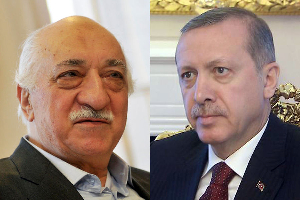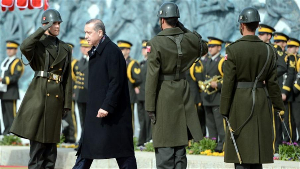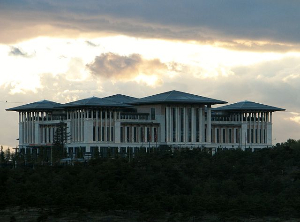Narrative Veils: Erdogan, the AKP and the Gulenist Arrests
By Gareth Jenkins (vol. 7, no. 23 of the Turkey Analyst)
On December 14, 2014, the Turkish police staged early morning raids in 13 provinces across the country following the issuing of arrest warrants for 31 alleged members of the Gülen Movement on terrorism charges. Those detained included six journalists, prompting claims in the national and international media that the arrests were another example of President Recep Tayyip Erdoğan’s increasing suppression of freedom of expression. In fact, the narratives of the AKP and the Gülen Movement about the arrests are both attempts to coat a power struggle with the gloss of a commitment to principle.

What the Columnists Say
President Recep Tayyip Erdoğan’s recent statement that Muslims were the ones who discovered the Americas have stimulated many commentators to draw parallels to Atatürk who claimed that Turks from Central Asia had founded all the significant civilizations in the world. Murat Belge writes that Atatürk’s “Sun-Language Theory” was no less “ridiculous” than the theory about “Muslims in America.” Fatih Yaşlı disagrees, saying that the early republic and Erdoğan’s new Turkey cannot be compared, as the latter embodies an ambition to install a religiously authoritarian system. Ahmet İnsel writes that one important reason why the AKP has been able to perpetuate its hegemony is the way many modern, secular “progressives” look at people from the lower classes, that they accuse them of selling their votes in return for social welfare benefits. Yüksel Taşkın challenges the claim of Kemalists and many leftists that the liberals were responsible for paving the way for the ascent of the AKP. He writes that Kemalists were chiefly responsible for this, while the trouble for liberals is that they find it difficult to discard the notion that history inexorably progresses toward a positive ending.

The Return of the Generals
By Halil Karaveli (vol. 7, no. 21 of the Turkey Analyst)
The Turkish generals are no longer afraid to speak out and they exert influence over government policies. Erdoğan invited the military back into the power equation when, faced with the Gülenist challenge to his power, and in need of a new ally, he gave the signal to open the prison doors for the convicted officers. But more than anything else, it is the persistence of an authoritarian mindset that sets the stage for the recurrent assertion of the power of the military in Turkey.

What the Columnists Say
President Erdoğan is serious about building a mosque in Cuba and in his allegation that Muslims discovered America before Columbus, contends Fatih Yaşlı. The latest remarks of Erdoğan speak of the ideological nature of his regime, he writes. Mümtaz’er Türköne writes that the new, 1,000 room presidential palace of Erdoğan is a monument to the suspension of the rule of law. Murat Belge observes that ridding Turkey of Atatürkism has not ushered in democracy. A new Turkey will be born the day power holders abandon their palatial ambitions, Belge writes. Elif Çakır worries that there is still a risk of a military coup. Abdülkadir Selvi presents the news that Abdullah Öcalan is going to announce early next year that PKK permanently gives up the armed struggle in Turkey.

Planes, Palaces and Paranoia: Erdogan's New Turkey
By Gareth Jenkins (vol. 7, no. 20 of the Turkey Analyst)
On November 4, 2014, Turkish Finance Minister Mehmet Şimşek revealed that a total of $800 million would be spent on a new palace and plane for President Recep Tayyip Erdoğan. The announcement has reinforced concerns about not only about Erdoğan’s increasing authoritarianism but also about his growing absorption into his self-image at the cost of the realities of the world around him.








